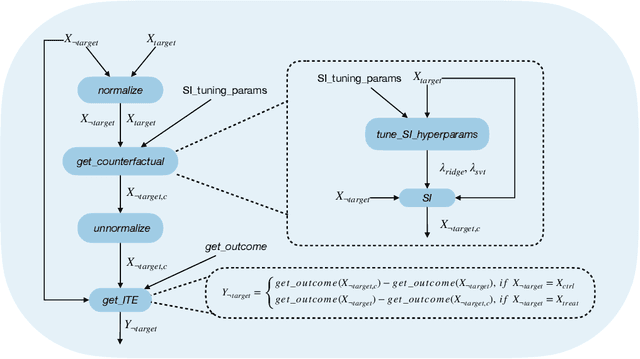SECRETS: Subject-Efficient Clinical Randomized Controlled Trials using Synthetic Intervention
Paper and Code
May 08, 2023



The randomized controlled trial (RCT) is the gold standard for estimating the average treatment effect (ATE) of a medical intervention but requires 100s-1000s of subjects, making it expensive and difficult to implement. While a cross-over trial can reduce sample size requirements by measuring the treatment effect per individual, it is only applicable to chronic conditions and interventions whose effects dissipate rapidly. Another approach is to replace or augment data collected from an RCT with external data from prospective studies or prior RCTs, but it is vulnerable to confounders in the external or augmented data. We propose to simulate the cross-over trial to overcome its practical limitations while exploiting its strengths. We propose a novel framework, SECRETS, which, for the first time, estimates the individual treatment effect (ITE) per patient in the RCT study without using any external data by leveraging a state-of-the-art counterfactual estimation algorithm, called synthetic intervention. It also uses a new hypothesis testing strategy to determine whether the treatment has a clinically significant ATE based on the estimated ITEs. We show that SECRETS can improve the power of an RCT while maintaining comparable significance levels; in particular, on three real-world clinical RCTs (Phase-3 trials), SECRETS increases power over the baseline method by $\boldsymbol{6}$-$\boldsymbol{54\%}$ (average: 21.5%, standard deviation: 15.8%).
 Add to Chrome
Add to Chrome Add to Firefox
Add to Firefox Add to Edge
Add to Edge